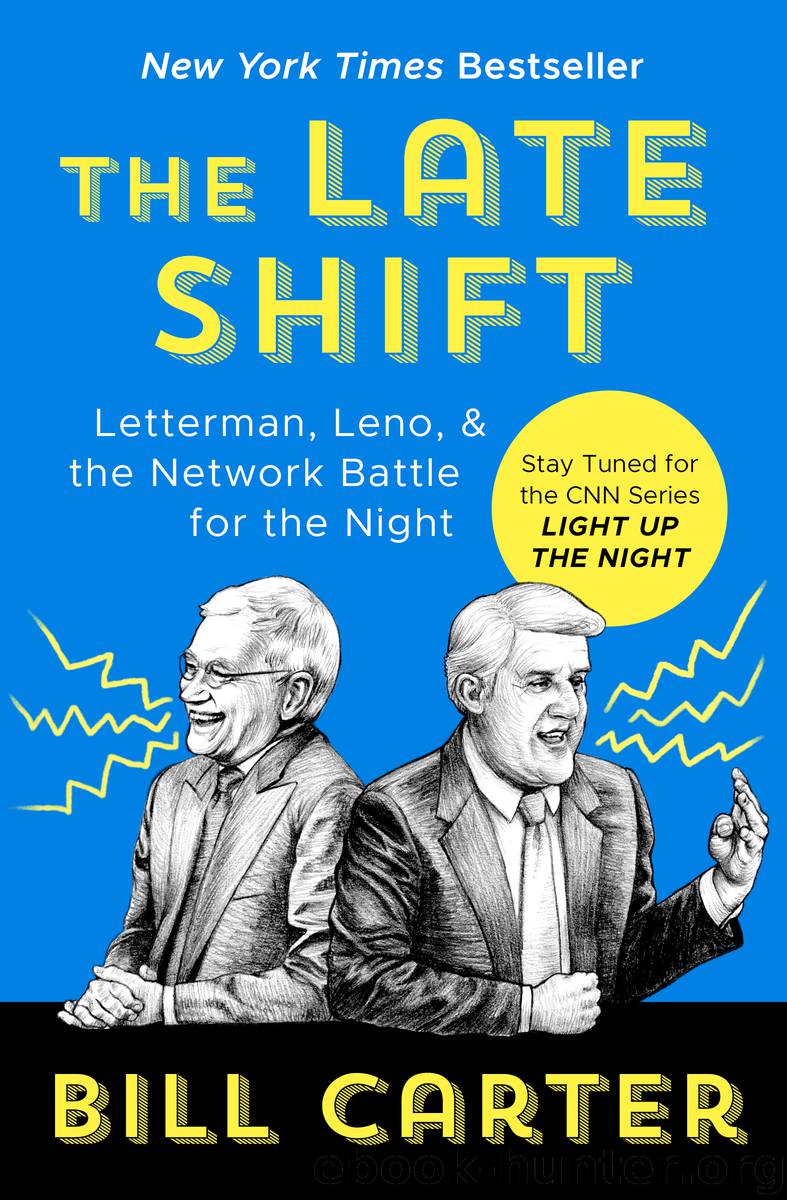The Late Shift by Carter Bill;

Author:Carter, Bill;
Language: eng
Format: epub
Publisher: Open Road Media
Published: 2019-12-16T16:00:00+00:00
Stringer spent hours on the phone with Ovitz, talking in more general terms about the values of CBS, and in person with Gabler, who conducted the specific negotiations. But Stringer never felt secure about CBS’s position. He decided it was the most difficult negotiation he had ever been a part of. The variables were incalculable. When Stringer thought of Viacom and all that money, he also thought of things such as how they could try to sell Letterman on the virtues of cross-promotion on their cable channels, including MTV. When Stringer thought of Fox he thought of Rupert Murdoch tossing in movie deals that CBS simply couldn’t match, because it wasn’t part of a movie studio. About all Stringer could take comfort in was that he was negotiating for a person who was a broadcaster down to his loafers. Stringer never felt the deal would turn on money, partly because he could sense that Letterman was simply not the materialistic type, but mostly because this entire orchestration of escape from NBC could not have been about money. It had to be about more than that, Stringer thought. “It had to be about fulfillment and opportunity and a well-earned moment in the spotlight.”
In the end, the CBS offer was not the biggest in terms of money; it was dwarfed by the Viacom offer, beaten by the Chris-Craft offer, and about the same as what Fox would have put up. Fox offered Letterman a guaranteed salary of $12 million a year, but that could have swelled by more than $3 million a year if he hit certain ratings figures. Fox’s three-year deal included up to $10 million in bonus money for ratings performance. The three-year license fee guarantee from Fox was $84 million, or $28 million a year, with another $7.2 million set aside for prime-time specials.
When he discussed the merits of the deals, Ovitz emphasized that the CBS offer included “value-added” features, such as the chance to become, in essence, the on-air spokesman for the entire network, and the fact that CBS looked like the network that was starting to put it all together in prime time and elsewhere. Gabler believed CBS was truly hungry, and well on its way to recovering fully from its disaster of the late eighties. Besides that, Gabler concluded, Howard Stringer was a phenomenal executive.
Letterman had the Ed Murrow image stuck somewhere in the back of his mind, and that didn’t hurt. Certainly at CBS the decision would be the cleanest: He would get his shot on a network at 11:30; it would be direct competition with the “Tonight” show, mano a mano with Jay Leno.
For some on the Letterman/CAA side, the selection of CBS was a nondecision. Syndication had never been part of the equation; Fox was a step into uncertainty. CBS won the game by default.
But it was not as though CBS hadn’t put chips on the table. The network’s three-year deal guaranteed Letterman a yearly salary of $12.5 million, with a bonus clause that could take it as high as $14.
Download
This site does not store any files on its server. We only index and link to content provided by other sites. Please contact the content providers to delete copyright contents if any and email us, we'll remove relevant links or contents immediately.
| Direction & Production | Genres |
| Guides & Reviews | History & Criticism |
| Reference | Screenwriting |
| Shows |
Head of Drama by Sydney Newman(2028)
Robin by Dave Itzkoff(2017)
I'm Judging You by Luvvie Ajayi(1896)
The Paranormal 13 (13 free books featuring witches, vampires, werewolves, mermaids, psychics, Loki, time travel and more!) by unknow(1852)
Single State of Mind by Andi Dorfman(1518)
Ten by Gretchen McNeil(1507)
#MurderTrending by Gretchen McNeil(1402)
Key to the Sacred Pattern: The Untold Story of Rennes-le-Chateau by Henry Lincoln(1356)
Most Talkative by Andy Cohen(1314)
Merv by Merv Griffin(1271)
This Is Just My Face by Gabourey Sidibe(1186)
Notes from the Upside Down by Guy Adams(1183)
Jamie Oliver by Stafford Hildred(1151)
The Hunger Games: Official Illustrated Movie Companion by Egan Kate(1125)
Springfield Confidential by Mike Reiss(1112)
Clarkson--Look Who's Back by Gwen Russell(1082)
The TV Writer's Workbook: A Creative Approach To Television Scripts by Ellen Sandler(1076)
Blue Planet II by James Honeyborne & Mark Brownlow(1026)
Dark Angel by D. A. Stern(1018)
